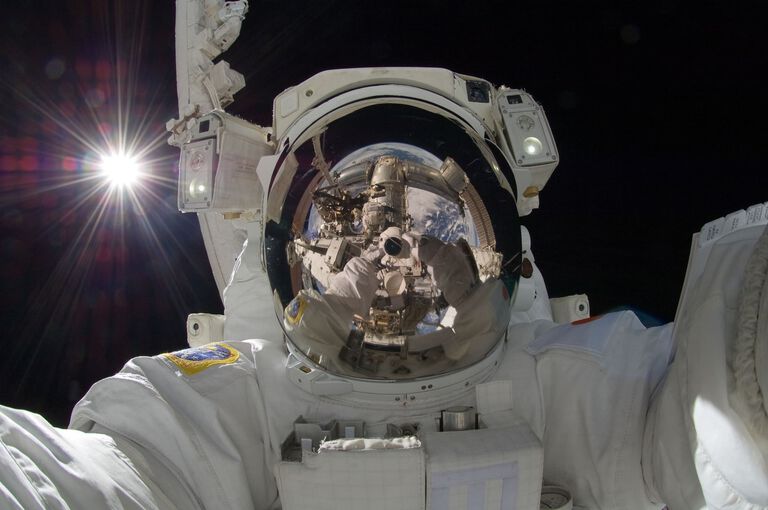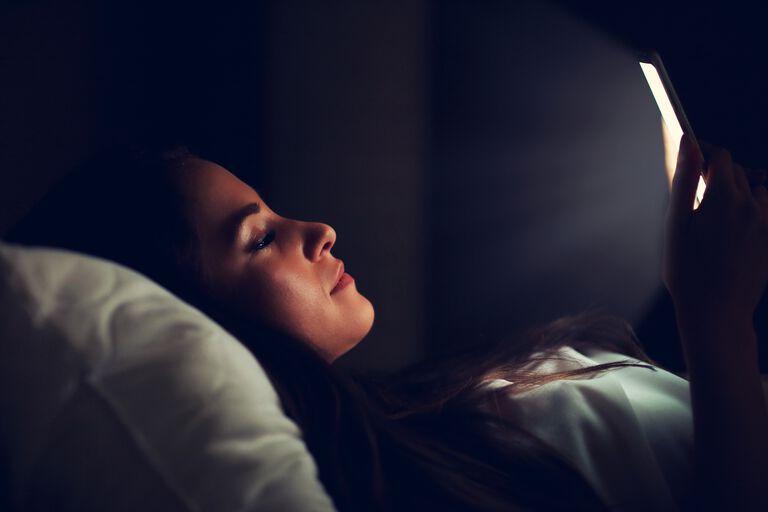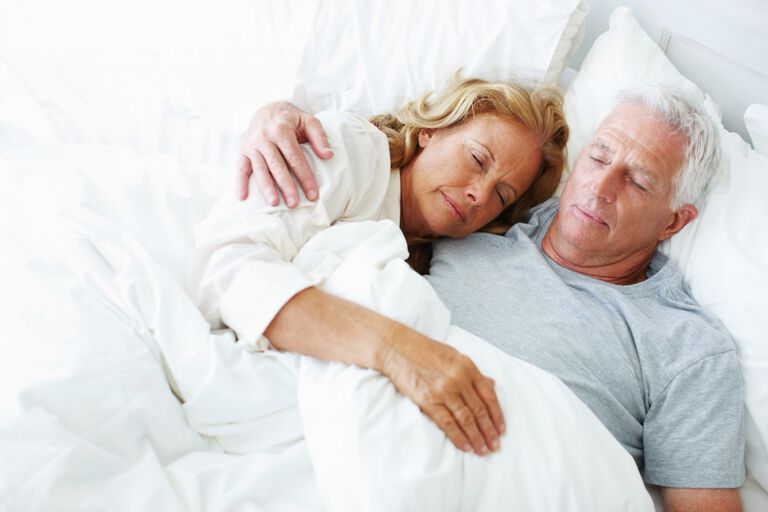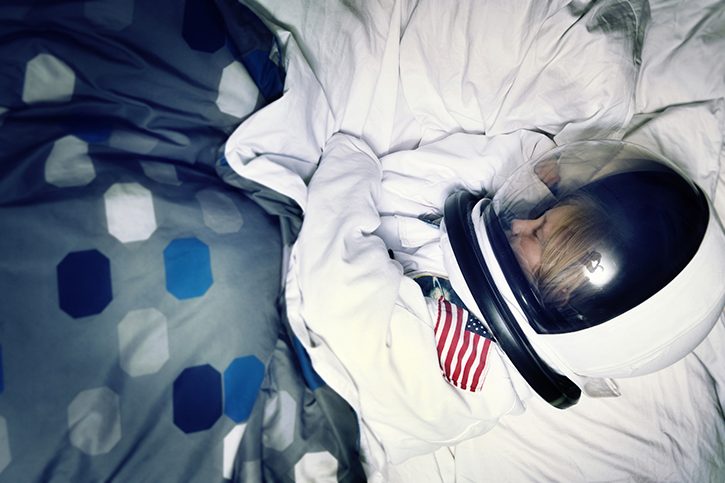IS IT EASY TO SLEEP IN SPACE?

Becoming an astronaut is one of the most common childhood dreams, but the reality of life in space is shrouded in mystery. How do astronauts exercise? Is it easy to sleep in space? Are there benefits to sleeping in space?
To celebrate its historic connection with NASA, TEMPUR® dives into life in space, answering your questions on astronaut sleep.
Life in Space for Astronauts
Since the first journey into space in 1961, we have been fascinated with space travel. We imagine what it feels like to look out of a window and see nothing but infinite stars, or to float weightlessly above the ground.
However, being an astronaut is a serious job, with many responsibilities. These include science experiments, the maintenance and repair of equipment and spacewalking, working outside the space station in the trademark suit.
To be prepared for this important work, astronauts must be well-rested and healthy. So, how do they manage this in space?
Why is Sleeping in Space Difficult?
Astronauts have demanding jobs – so it’s vital that they get a good night’s sleep to boost their focus, job performance and energy during the day. Human sleep cycles are determined on Earth by forces that people often take for granted. These are different in space, which can make sleeping more difficult.
Day and Night
The light from the sun creates day and night on Earth. Your body relies on these light changes for regulation of your circadian rhythms, which control when you sleep. However, astronauts orbiting the Earth will make one complete turn of the planet every 90 minutes, meaning sixteen sunrises and sunsets a day! Therefore, astronauts cannot rely on the day-night cycle to regulate their circadian rhythms and sleep.
Zero Gravity
Although we rarely think about it, gravity is instrumental to sleep. The gravitational pull of the planet allows you to lie down, so you can find a comfortable position to rest and remain there. Zero gravity in space means there is no ‘down’; an astronaut would float around the cabin of the space station without taking measures to secure themselves.
How Do Astronauts Sleep?
Spaceships solve the issue of zero gravity using sleeping compartments or crew cabins with sleeping bags on the walls. Cords are used to hold astronaut’s bodies still and ensure they don’t drift about while sleeping. It’s less comfy, but means they at least remain stationary and safe as they sleep.
Space stations also attempt to recreate the day-night cycle by blocking out sunlight when it’s time for those onboard to rest. Sleeping compartments are often equipped with shutters to stop light from the sun entering and astronauts will also sometimes wear sunglasses as they sleep.
Some astronauts also use earplugs to reduce any noise from equipment or machinery. It may be difficult to imagine sleeping in these cramped conditions, but astronauts eventually adjust to their new lifestyle.
Astronauts are recommended to get eight hours of shut-eye a day to ensure that their cognitive function is at its best – it is truly admirable that they manage this without the help of a comfy mattress or pillow.
Exercising like an Astronaut
Exercise is another important factor of space life. Due to zero gravity, muscles and bones become weaker in space if not exercised regularly. Astronauts therefore need to exercise for a couple of hours per day, using specially designed equipment such as treadmills to keep their bodies fit and healthy.
Fortunately, there is a positive link between exercise and sleep. While astronauts may be sleeping in relatively uncomfortable conditions, this exercise will help with the regulation of their sleep cycles and make resting at ‘night’ easier.
Are There Benefits to Sleeping in Space?
There aren’t many benefits to sleeping in space – it’s not comfort that fuels an astronaut’s ambition to explore the stars! However, some astronauts have found sleeping in space has led to them having less disordered breathing during sleep and even snoring less. This is because the lack of gravity prevents the airway narrowing.
Could you imagine being an astronaut? Have you found TEMPUR®’s look into sleeping in space interesting? Then share with your friends using the buttons below…
Download our brochure
Want to know more about our story? Download our brochure to see more.

Visit a TEMPUR® store or talk to a sleep expert
Want to know more about TEMPUR®? Either visit us in store or arrange to speak to us today.
Get the latest news and offers
Sign up to receive news and offers about TEMPUR® products. Detailed information on the use and storage of data can be found in the Privacy Policy.




